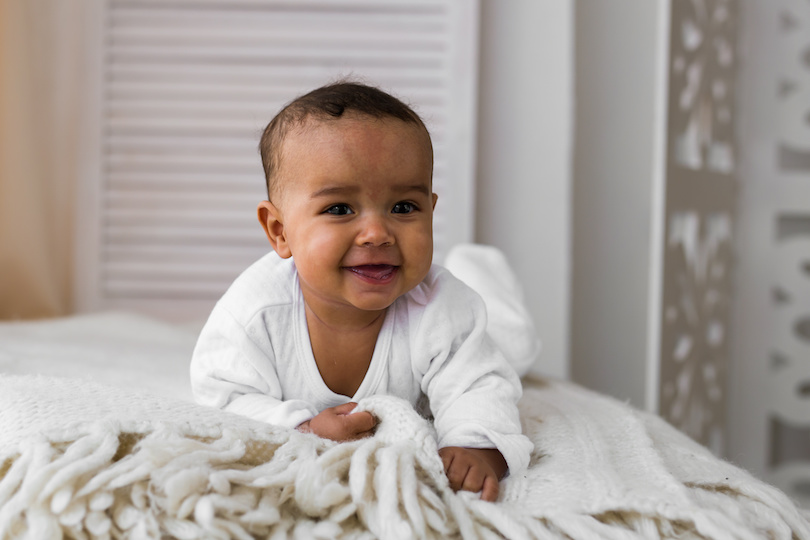Your Baby’s Development. What Most Babies do at 6 Months:
Social/Emotional
- Knows familiar faces and begins to know if someone is a stranger.
- Likes to play with others, especially parents.
- Responds to other people’s emotions and often seems happy.
- Likes to look at self in a mirror.
Language
- Responds to sounds by making sounds.
- Strings vowels together when babbling and takes turns with parent making sounds.
- Responds to own name.
- Makes sounds to show when happy or upset.
Learning/Thinking
- Looks around at things nearby.
- Brings things to mouth.
- Is curious about things and tries to get things that are out of reach.
- Begins to pass things from one hand to the other.
Movement/Physical Growth
- Rolls over in both directions (from back to front, from front to back).
- Begins to sit without support.
- When standing, supports weight on legs and might bounce.
- Rocks back and forth, sometimes crawls back before moving forward.
Talk to your child’s doctor if your baby:
- Does not try to get things that are in reach.
- Shows no affection for caregivers.
- Does not respond to nearby sounds.
- Has problems getting things to mouth.
- Does not make vowel sounds.
- Does not roll over.
- Does not laugh or squeal.
- Seems stiff with tight muscles.
- Seems floppy like a rag doll.
All children develop at their own pace, so try not to compare your child to others. If you ever have concerns, make sure to bring them up to your child’s provider. If your baby was born premature, he/she will be on a different developmental milestone path. This is a great thing to discuss with baby’s provider at the 6-month visit!
Source: cdc.gov



